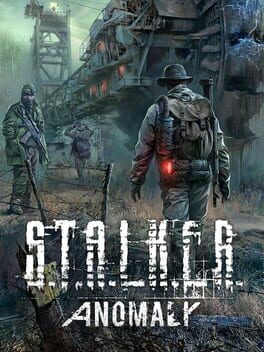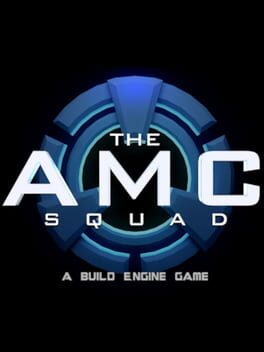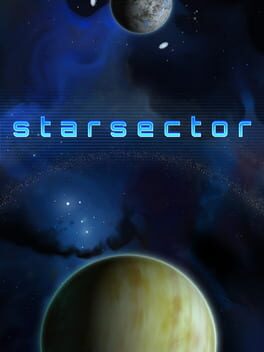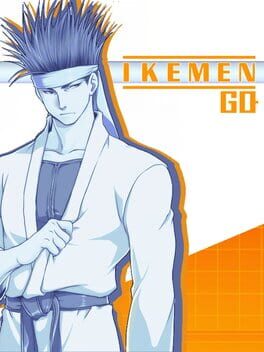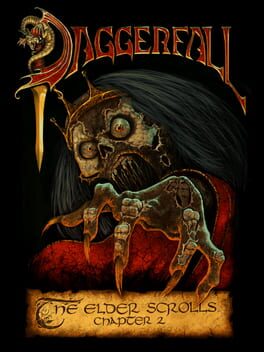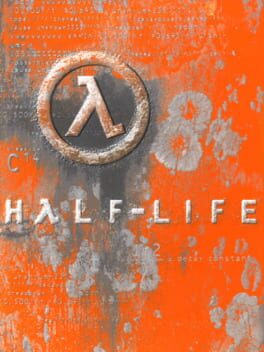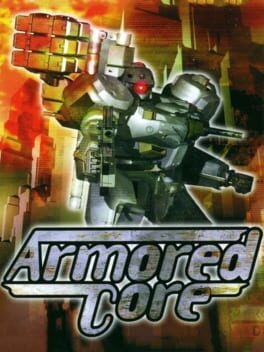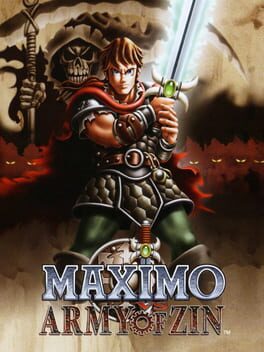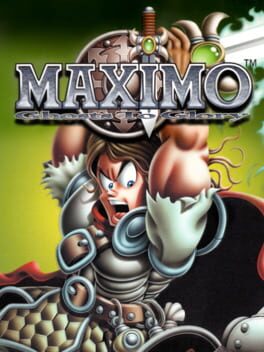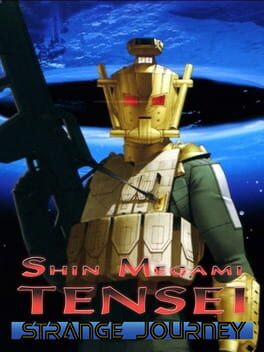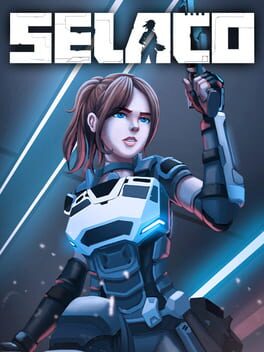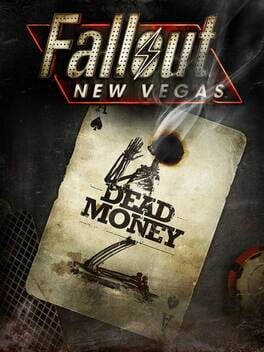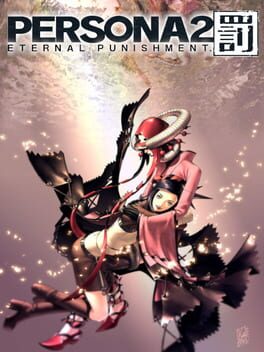peppypoppy
197 Reviews liked by peppypoppy
The AMC Squad
2022
Starsector
2013
I.K.E.M.E.N Go
TBD
I.K.E.M.E.N Go
TBD
Half-Life
1998
Half-Life
1998
remains my favorite first-person shooter experience after all this time. while there may not be as many immediate "wow" moments as a lot of single-player experiences in the genre down the line like doom eternal, modern warfare, or hell, even half-life 2 - much of what makes half-life so wonderful lies in the unspoken and understated.
as an example, think of the moment where gordon finally makes it out of the initial horror of the impact of the resonance cascade near the start of the game. the science team has been pinning their hopes on the military's black ops unit to show up and get them out of this mess; a pure accident and something the team had been trying to prevent. where half-life 2's combine is shown as a clearly benevolent and constant force within its universe, half-life 1 deals this reveal in a much more moment-to-moment manner: screams over the radio, shells ringing in the distance, and the IMMEDIATE gameplay shift to brutality upon your first eye-lock with the black ops.
this mentality is true of the game design that permeates half-life's skeleton, too. the areas feel extremely organic, not very "game-y" at all - the laboratories, the bomb shelters, the waste disposals, and those wide open red rocky mountains in which the game reveals an almost proto-snake eater confrontation with the harsh openness of nature after cooping you up in sheltering and claustrophobic areas for so long. the breadth of half-life is extremely becoming of such a short title.
the movement is quick and the second-by-second playbook is rewarding to master - where previous landmarks like doom or quake often gave you a toolkit with obvious champions, the half-life armory is a diverse kit with a dozen-so weapons each serving their own indispensable purpose throughout the entire experience. there is NO fps i've ever played that has made grenades, the starting pistol, and non-hitscan weapons feel so necessary. in tone and layout execution, i've often lovingly called half-life the "first 3d metroid" game (sans the lack of the breadth of metroid's exploration elements of course) and i still stand by that - especially true of half-life's intergalactic closing chapter.
the ending is particularly intriguing and the threads for a still unsolved quarter-century fascination with the g-man are sown within only a conversation's time. gordon's questions have no time to be answered - only a choice and a revolution awaits. all respect to half-life 2 and what it manages to achieve from every technical standpoint - but friends, it's in what half-life 1 doesn't say...
as an example, think of the moment where gordon finally makes it out of the initial horror of the impact of the resonance cascade near the start of the game. the science team has been pinning their hopes on the military's black ops unit to show up and get them out of this mess; a pure accident and something the team had been trying to prevent. where half-life 2's combine is shown as a clearly benevolent and constant force within its universe, half-life 1 deals this reveal in a much more moment-to-moment manner: screams over the radio, shells ringing in the distance, and the IMMEDIATE gameplay shift to brutality upon your first eye-lock with the black ops.
this mentality is true of the game design that permeates half-life's skeleton, too. the areas feel extremely organic, not very "game-y" at all - the laboratories, the bomb shelters, the waste disposals, and those wide open red rocky mountains in which the game reveals an almost proto-snake eater confrontation with the harsh openness of nature after cooping you up in sheltering and claustrophobic areas for so long. the breadth of half-life is extremely becoming of such a short title.
the movement is quick and the second-by-second playbook is rewarding to master - where previous landmarks like doom or quake often gave you a toolkit with obvious champions, the half-life armory is a diverse kit with a dozen-so weapons each serving their own indispensable purpose throughout the entire experience. there is NO fps i've ever played that has made grenades, the starting pistol, and non-hitscan weapons feel so necessary. in tone and layout execution, i've often lovingly called half-life the "first 3d metroid" game (sans the lack of the breadth of metroid's exploration elements of course) and i still stand by that - especially true of half-life's intergalactic closing chapter.
the ending is particularly intriguing and the threads for a still unsolved quarter-century fascination with the g-man are sown within only a conversation's time. gordon's questions have no time to be answered - only a choice and a revolution awaits. all respect to half-life 2 and what it manages to achieve from every technical standpoint - but friends, it's in what half-life 1 doesn't say...
Armored Core
1997
To be totally honest, with my only experiences with this series being Armored Core: For Answer (just a handful of hours) and Armored Core VI (platinum'd), I expected to find the first entry in the series—predating them by 11 and 26 years respectively—a lot rougher around the edges than it actually was.
There are only two complaints I can really level against this game. First, the controls are fairly awkward, which is more or less an inevitability for a game that asks you to perform complex movement through 3D space before the advent of dual-stick controllers. And once I remapped my controls (L hori → L1/R1, R hori → L hori, R vert → L2/R2) it was mistakable for a modern scheme, although the vertical sensitivity was still iffy enough that I still generally tried to avoid relying on it.
The second is the balance, and this is maybe too much of a nitpick. Relatively early on I found the WG-1-KARASAWA laser rifle, which just absolutely tore through the rest of the game. As long as I had enough distance on an enemy to make up for its narrow targeting range, I could just let it rip and expect them to die. With that said, there were plenty of missions that encouraged me to use different builds, and I could have stopped leaning so hard on those lasers any time I wanted, so it's my fault as much as the game's.
A few additional points that are just bouncing around my head:
• Having the first two mission choices be "Eliminate Squatters" or "Eliminate Strikers" is just so so good. Immediately communicates the game's politic and the player's place within the system. I can't get over how much I love that specific screen.
• The music in this goes incredibly hard. Shouts out to Masaru Tateyama and Keiichiro Segawa, I will buy you two a drink if I ever get the chance.
• Despite how hard it is in practice to actually do 3D combat with this game's controls, I respect the ambition to swing for it. It clearly paid off, since that combat works fabulously in later entries with proper dual stick control schemes.
• The way the game's monetary economy intersects with its save economy is odd. If you lose a mission, you still have to pay for ammunition and repairs, and you can in fact go into debt because of this, which is really cool. But you can also save between every mission, so a savvy player is never going to log a lost mission on their record. You could imagine doing a "no save-scum" challenge run, but at the point at which you're comfortable enough to do that you're unlikely to be outright losing anyway—the missions just aren't that hard once you know what you're doing. So what exactly is this debt mechanic for? I don't know.
There are only two complaints I can really level against this game. First, the controls are fairly awkward, which is more or less an inevitability for a game that asks you to perform complex movement through 3D space before the advent of dual-stick controllers. And once I remapped my controls (L hori → L1/R1, R hori → L hori, R vert → L2/R2) it was mistakable for a modern scheme, although the vertical sensitivity was still iffy enough that I still generally tried to avoid relying on it.
The second is the balance, and this is maybe too much of a nitpick. Relatively early on I found the WG-1-KARASAWA laser rifle, which just absolutely tore through the rest of the game. As long as I had enough distance on an enemy to make up for its narrow targeting range, I could just let it rip and expect them to die. With that said, there were plenty of missions that encouraged me to use different builds, and I could have stopped leaning so hard on those lasers any time I wanted, so it's my fault as much as the game's.
A few additional points that are just bouncing around my head:
• Having the first two mission choices be "Eliminate Squatters" or "Eliminate Strikers" is just so so good. Immediately communicates the game's politic and the player's place within the system. I can't get over how much I love that specific screen.
• The music in this goes incredibly hard. Shouts out to Masaru Tateyama and Keiichiro Segawa, I will buy you two a drink if I ever get the chance.
• Despite how hard it is in practice to actually do 3D combat with this game's controls, I respect the ambition to swing for it. It clearly paid off, since that combat works fabulously in later entries with proper dual stick control schemes.
• The way the game's monetary economy intersects with its save economy is odd. If you lose a mission, you still have to pay for ammunition and repairs, and you can in fact go into debt because of this, which is really cool. But you can also save between every mission, so a savvy player is never going to log a lost mission on their record. You could imagine doing a "no save-scum" challenge run, but at the point at which you're comfortable enough to do that you're unlikely to be outright losing anyway—the missions just aren't that hard once you know what you're doing. So what exactly is this debt mechanic for? I don't know.
An enjoyable sequel that improves on the first game in several ways but still comes out feeling a bit lacking in comparison. The gameplay in general is more polished with far less opportunities for frustrating deaths, you get a nice new hammer to play around with, and levels are more expansive with a wider variety of obstacles. While combat feels more developed than the original game, it still remains fairly simple and repetitive and there's far too much of it. I still had a good time but I definitely prefer the simple nature of the first game.
Capcom has made more good games they've forgotten about than most studios have made good games.
The word that kept coming to my mind as I played Maximo was "deliberate". This game forces you to be thoughtful in your actions. You need to be precise in your platforming, as levels rise and crumble around you and platforms roll down rivers like Frogger. Failing a jump often means instant death, although the game is fairly generous with extra lives and continues. There is no manual camera, only a button that will attempt to center the camera behind Maximo. Honestly, this may be because I’m from a time before manual cameras (you merely adopted the dark etc.), but I felt that the camera was generally good at being where I needed it to be. And I love the slight Dutch angle its tilted at, it adds so much to the feel of the world.
Combat is just as deliberate. Your sword bounces off of rock and metal, making Maximo vulnerable for several excruciating milliseconds. Swing at wood, and it takes even longer for him to remove it. The biggest combo is a two-hitter perk you could potentially not keep in your permanent list, and it has a noticeable wait after the 2nd attack, so with multiple enemies approaching performing the combo could leave you open.
Enemies are incredibly varied in the best way to dispatch them. Even the duck button, which seems worthless at first, is crucial to destroy certain enemies without taking damage. There are these pirate enemies that are easy to knock down, but when you ground pound them you will take damage because they’ve been skewered through with a cutlass that is now pointing up. What you need to do is jump over them and knock them down from behind, which allows you to finish them off without getting hurt.
Maximo is full of little decisions like these. Do I tank this attack with my shield or do a ranged shield throw, both of which lower the shield’s durability? The shield is incredibly useful, and when it breaks you’ll be defenseless until you find another one (Maximo’s blacksmiths took Hyrule correspondence courses). Do I do this difficult platforming section to get one of the incredibly powerful temporary sword upgrades? Do I use one of my keys to unlock a gate or chest, or save them for later?
All of this adds up to a game that I enjoyed so much I beat it in a fever rush of two days. And after playing the first level of the sequel, it turns out they removed everything that made the first game work in order to make something that plays like… (checks notes) MediEvil? That can’t be right?
The word that kept coming to my mind as I played Maximo was "deliberate". This game forces you to be thoughtful in your actions. You need to be precise in your platforming, as levels rise and crumble around you and platforms roll down rivers like Frogger. Failing a jump often means instant death, although the game is fairly generous with extra lives and continues. There is no manual camera, only a button that will attempt to center the camera behind Maximo. Honestly, this may be because I’m from a time before manual cameras (you merely adopted the dark etc.), but I felt that the camera was generally good at being where I needed it to be. And I love the slight Dutch angle its tilted at, it adds so much to the feel of the world.
Combat is just as deliberate. Your sword bounces off of rock and metal, making Maximo vulnerable for several excruciating milliseconds. Swing at wood, and it takes even longer for him to remove it. The biggest combo is a two-hitter perk you could potentially not keep in your permanent list, and it has a noticeable wait after the 2nd attack, so with multiple enemies approaching performing the combo could leave you open.
Enemies are incredibly varied in the best way to dispatch them. Even the duck button, which seems worthless at first, is crucial to destroy certain enemies without taking damage. There are these pirate enemies that are easy to knock down, but when you ground pound them you will take damage because they’ve been skewered through with a cutlass that is now pointing up. What you need to do is jump over them and knock them down from behind, which allows you to finish them off without getting hurt.
Maximo is full of little decisions like these. Do I tank this attack with my shield or do a ranged shield throw, both of which lower the shield’s durability? The shield is incredibly useful, and when it breaks you’ll be defenseless until you find another one (Maximo’s blacksmiths took Hyrule correspondence courses). Do I do this difficult platforming section to get one of the incredibly powerful temporary sword upgrades? Do I use one of my keys to unlock a gate or chest, or save them for later?
All of this adds up to a game that I enjoyed so much I beat it in a fever rush of two days. And after playing the first level of the sequel, it turns out they removed everything that made the first game work in order to make something that plays like… (checks notes) MediEvil? That can’t be right?
To get the bad out of the way first, I think it’s a tad long in the tooth and I’m not a big fan of the way they changed skill inheritance in this one. Combat is expectedly great for an SMT game, but I prefer Persona’s ‘one more’ and SMT’s ‘press turn’ systems over Strange Journey’s alternative. I would’ve liked a little more focus on story, and the main characters are too transparently just manifestations of the different moralities.
The best things about the game are its dungeon crawling and its atmosphere. I expected the dungeon crawling to become tedious before long, but they throw new ideas at you frequently enough that I never felt it became tiresome.
They do a great job at making the world feel really hostile and alien. Everything is out to kill you, even the world itself. It’s a crude caricature of earth. It’s super cool. And Shoji Meguro’s orchestral OST is the perfect accompaniment. The first area theme is the most evil sounding shit ever.
Other than that, it excels at basically everything you expect an SMT game to excel at. Play this, it’s really good.
The best things about the game are its dungeon crawling and its atmosphere. I expected the dungeon crawling to become tedious before long, but they throw new ideas at you frequently enough that I never felt it became tiresome.
They do a great job at making the world feel really hostile and alien. Everything is out to kill you, even the world itself. It’s a crude caricature of earth. It’s super cool. And Shoji Meguro’s orchestral OST is the perfect accompaniment. The first area theme is the most evil sounding shit ever.
Other than that, it excels at basically everything you expect an SMT game to excel at. Play this, it’s really good.
Selaco
2024
I'm tempted to call Selaco a new boomer shooter, but that's not entirely fair. Selaco is a love letter to all kinds of FPS games, borrowing the best from a lot of different titles while doing its own thing.
Selaco is an arcadey FPS with levels and secrets, yet it takes a lot from shooters that came out after Half-Life, too. It has absolutely massive levels, yet it breaks them into chunks much like a Mario game would structure a world. One of the levels might be a massive mall, but it has clear chokepoints leading you into different areas with their own secret counts, which helps a lot if you're enjoying exploration like me.
Exploration is what got me hooked. The shooting is good, but it's been a while since I've seen an FPS game that understands how fun it is to find secrets. There are a TON of secrets in Selaco. What the game does best is give you the reason to seek them out to, as they feature upgrades to your health/guns/max grenade capacity, or something entirely new. It's a far cry from secrets which are fun to find but contain ammo you can't even pick up because you're full. There are surprises all over!
Visually, the game is a treat. Everything feels punchy and meaty, with quite a few props exploding, which makes the action feel so much more alive. Enemies explode into purple chunks, paper flies everywhere, it's a treat. That said, it's never too overbearing. The visual language of the game is quite simple, and despite levels being large, I've not gotten lost a single time thanks to pretty clear green visual indicators over progress. And even if I did get lost, there's a quest log along with a good mini-map. There's never a feeling of not finding a button you needed to use and wandering around.
The levels all feel unique and are even structured quite differently. Some feel more like arena shooters, while others let you breathe and explore, organically fighting any enemies you see. Some are puzzley levels, while others prioritize atmosphere. If there's one thing I don't like about this game is that so far there are a few too many office complex levels. It feels like each set of levels contains one pretty sizeable office space, and even if devs try to make them unique, it wears off its welcome. I get that the game tries to go for realism, and part of it is having offices for workers of various organizations, but I feel like at now they're way too prevalent while taking up a lot of their respective levels.
Oh yes, I completely forgot that this game is actually in Early Access, and only remembered it while typing out "so far"! That's because this is pretty much a full-length game already with around 10-15 hours of gameplay, yet it's only a third of the way done. I honestly can't say enough good about this title.
Every weapon is a joy to use and every battle felt pretty significant. The enemies are fairly smart and the game is quite hard even on the lower difficulties, at least for me. I have encountered some bugs (one secret broke, and the game would crash occasionally), but I don't even care. This rules. If you like Half-Life's often mundane enviroments, DOOM's secrets or Resident Evil 4's gun upgrading, pick this up. If you don't, still give it a try.
Selaco is an arcadey FPS with levels and secrets, yet it takes a lot from shooters that came out after Half-Life, too. It has absolutely massive levels, yet it breaks them into chunks much like a Mario game would structure a world. One of the levels might be a massive mall, but it has clear chokepoints leading you into different areas with their own secret counts, which helps a lot if you're enjoying exploration like me.
Exploration is what got me hooked. The shooting is good, but it's been a while since I've seen an FPS game that understands how fun it is to find secrets. There are a TON of secrets in Selaco. What the game does best is give you the reason to seek them out to, as they feature upgrades to your health/guns/max grenade capacity, or something entirely new. It's a far cry from secrets which are fun to find but contain ammo you can't even pick up because you're full. There are surprises all over!
Visually, the game is a treat. Everything feels punchy and meaty, with quite a few props exploding, which makes the action feel so much more alive. Enemies explode into purple chunks, paper flies everywhere, it's a treat. That said, it's never too overbearing. The visual language of the game is quite simple, and despite levels being large, I've not gotten lost a single time thanks to pretty clear green visual indicators over progress. And even if I did get lost, there's a quest log along with a good mini-map. There's never a feeling of not finding a button you needed to use and wandering around.
The levels all feel unique and are even structured quite differently. Some feel more like arena shooters, while others let you breathe and explore, organically fighting any enemies you see. Some are puzzley levels, while others prioritize atmosphere. If there's one thing I don't like about this game is that so far there are a few too many office complex levels. It feels like each set of levels contains one pretty sizeable office space, and even if devs try to make them unique, it wears off its welcome. I get that the game tries to go for realism, and part of it is having offices for workers of various organizations, but I feel like at now they're way too prevalent while taking up a lot of their respective levels.
Oh yes, I completely forgot that this game is actually in Early Access, and only remembered it while typing out "so far"! That's because this is pretty much a full-length game already with around 10-15 hours of gameplay, yet it's only a third of the way done. I honestly can't say enough good about this title.
Every weapon is a joy to use and every battle felt pretty significant. The enemies are fairly smart and the game is quite hard even on the lower difficulties, at least for me. I have encountered some bugs (one secret broke, and the game would crash occasionally), but I don't even care. This rules. If you like Half-Life's often mundane enviroments, DOOM's secrets or Resident Evil 4's gun upgrading, pick this up. If you don't, still give it a try.
Hey did you know that Fallout 3 never came out? No, not the bad one everyone ignores in favour of NV, I mean the original Fallout 3 - Van Buren, the one that barely anybody is even aware of these days.
Van Buren is something of a fascination of mine. In the wake of Fallout 3’s awfulness way back in 2008, I spent ages poring over the design documents and every scrap of information I could find. Stillborn though it was, seemingly most of the game’s documents had leaked online which provided a robust treasure trove of knowledge.
But alas, they who gain knowledge gain sorrow as well. In plumbing the depths of Van Buren, my feelings of discontent towards Fallout only grew. Try as I might, I couldn’t manifest the revival of Van Buren or Good Fallout Games.
I remember the day I saw that first New Vegas teaser. Watching cold and stone-faced, disinterested and bored. Oh, a robot? Another robot? I killed thousands of robots in 3. I’m sick of robots-
And right there, at that very moment in the memory, young me lay eyes on it: The flag of the New California Republic.
“Could it be?” Thought young Mira. “Van Buren… revived?”
The introductory cutscene only increased the hype. NCR out in full force, the Great Khans having returned for a third time running, Caesar’s Legion in all their rancid glory, Hoover Dam… To say nothing of the reveal that many ex-Fallout 1/2/Van Buren were involved, Josh Sawyer among them.
The day New Vegas came into my life was wondrous. I skipped out on everything to go home and play it for 4-5 days straight.
And… It wasn’t what I wanted! I didn’t hate it, but I did come away feeling lost. I did not get it, nor could I, for I was simply too young. Young Mira wanted Van Buren, which she was [forgive me] """promised""" and felt a bit odd, having a game that seemed to be stuck in Van Buren's shadow but wasn't Van Buren.
Dead Money kinda came and went for younger me. Loved the atmosphere and the inclusion of an honest-to-god BAR but I was again far too young to get anything from it. I was one of those preternaturally annoying chucklefucks that thinks getting all the gold out of the vault "defeats the message".
But both NV and Dead Money were 14 years ago, I've had some time to think. About them, the other DLCs, and about Fallout as a whole.
The ghost of Dead Money hangs over NV, lurking in the corners. Father Elijah’s influence is felt as early as stepping into Helios One, to say nothing of how much his old fellows despise him. Whether the player discovers it or not, they’re traipsing on foundations that Elijah helped lay. That the NCR literally wear the carcasses of the Brotherhood troops they killed only adds to his mystique. Posters for Dean Domino are everywhere, visual white noise that most people pay no mind to. Among them, posters and graffiti alluding to the Sierra Madre as a mystical place where people leave their hearts behind. Dig further into the story and you’ll stumble across the Brotherhood, who spend half of their screen time cursing Elijah for digging their grave and not even having the courtesy to lay in it with them.
As it turns out, though, Elijah has his own grave to dig.
Dead Money isn’t very alluring on the surface. It trades a sprawling Wasteland, impressive locations and factions with distinct aesthetics for a muddy poison-soaked hellhole that’s only barely lit up and is near-exclusively populated by homogenous creeps in gas masks. Add in lots of backtracking, skill checks and fakeouts that explicitly punish
Not to mention the framing. A miserable old dick slaps a bomb collar on your neck and tells you to go rescue three “companions” - insofar as potentially dead weight can be a compatriot.
Everything about Dead Money screams Survival Horror. Shooting isn’t an option half the time and even when it is, ammo isn’t quite as plentiful in the Sierra Madre. There’s a fair share of backtracking and oftentimes the best way to resolve fights is to not get into them. New Vegas gets a bit power fantasy towards the middle-end of the game unless one plays on Hardcore Mode with the difficulty bumped up, and Dead Money immediately throws a wrench into this by stripping you of basically everything. Indeed, the Sierra Madre and its surroundings even call to mind some of the CG art made for Resident Evil: Survivor.
Dead Money isn’t what I’d call a ‘fun’ DLC. Even at its most gripping I can see why most people consider it a snoozefest even if I personally don’t. It’s much slower, more introspective and three times as morose as the other story-focused DLC (Lonesome Road), all while being far less overt with its narrative despite the endless repetition of its four key words: Let Go, Begin Again.
It isn’t immediately obvious how these words apply to Dog/God. Elijah is obsessed with the Sierra Madre, Dean is obsessed with fucking over the centuries-dead Frederick Sinclair, and Christine wants revenge on Elijah. The tragic Nightkin is an outlier at first, and in the intervening years since this game came out I’ve seen even fellow Dead Money enjoyers scratch their heads and declare them an outlier.
What struck me about Dog/God on this replay is how they have more in common than they don’t. Much attention is drawn to Dog’s voracious appetite and bottomless hunger, yes, but God’s fanatical need to control at every given moment is the same kind of gluttony in all but name.
But, relevant to the overarching theme, the most striking part about them is that there’s not really “two halves of a whole” within them so much as they are fragments inhabiting one body. Both of them, in their own way, voraciously pursue their desires while also trying to exert control over the other.
What they have to ‘let go’ of is themselves.
Which is, in all sincerity, deeply resonant. An annoying part of getting old and bothering with that self-improvement nonsense is that you’ll almost certainly come across parts of The Self that’ve accrued some crust over the ages. Beliefs you don’t really hold onto, anger that’s long since lost its target, endless little idiosyncrasies that add up into an odd little rusted automaton in the shape of you. Letting go of that is a bothersome process, albeit a necessary one.
The debatably-best ending for Dog/God is convincing them to let go of their respective Selves and simply embrace the end result. Take hold of the idiosyncrasies and accept them not as “two halves of a whole” but as different shades of the whole. Rather surprising to see such a gentle, loving treatment of DID from a game where - 30 minutes prior to starting this DLC - I got Cass’ infamous Long Dick Johnson line.
But you know what? Let’s skip the 4 protagonists of Dead Money and go back to the 5th: Me.
I think, at some point, everyone who’s young and adores a particular piece of art will inevitably conceptualize something perfect: Their perfect sequel, their perfect adaptation, their perfect spinoff, etc etc.
I’m not going to pretend I was any different, and pertinent to the topic at hand I’d long since had an idea in my head of “The Perfect Fallout”. Indeed, my earliest discontent towards New Vegas stemmed from the fact that it wasn’t that ideal. It was a more introspective and debatably experimental title that was still Fallout but not the Fallout I wanted.
Fortunately, I’ve grown out of those behaviours and have become vastly more accepting of flawed works. Indeed, the search for flawless art is at odds with the nature of art as a reflection of humanity - a uniquely flawed species of mammal.
In returning to Dead Money in 2024, in a post-Fallout 4 and post-Fallout TV world, truthfully I don’t even see the text on display.
I see a group of 4 people who’re maniacally obsessed with a perfect ideal to the point of self-ruination. They won’t accept anything less than what their mind’s eye sees, no matter how blind that eye is to the real world in front of them.
I see Fallout fans like my younger self, still clinging to the hopes that one day they’ll get the perfect flawless Fallout title.
And in this, I’ve come to appreciate the ending a lot more.
It may seem trite or overbearing to have your reward for a 4-5 hour puzzle gauntlet be some gold bars that you have to forsake, but on a meta level I appreciate it.
You can’t take all the gold bars with you without exploits or cheats. You have to make a choice: Be content with less, for at least you have something, or leave empty-handed. What was once stupid to younger Mira now feels profound, and for once I felt content to simply leave the gold untouched and settle for my spoils (Namely, the Automatic Rifle) before locking Elijah in the Vault.
I got the perfect ending this time. Told all the companions to just bail and move on with their lives, in much the same way I have to tell people in real life to ditch stupid vendettas/feuds and focus on the things in front of them. It was cathartic this time in a way it hasn’t been before - maybe I have gotten old.
To cap off the metaphor, though: Dead Money lands a lot better now that I’m content with New Vegas and am apathetic to any future Fallout entries. I’ve got my ideal Fallout game, even if it took some time for me to come around to it. Bethesda can turn the series into a playground all it wants; that’s that, and this is this.
Really, the hardest part of being a Fallout fan isn’t liking the games that are, it’s letting go of the games that co- Too on the nose? Sorry, please don’t throw tomatoes. Let me begin again- FUCK.
Van Buren is something of a fascination of mine. In the wake of Fallout 3’s awfulness way back in 2008, I spent ages poring over the design documents and every scrap of information I could find. Stillborn though it was, seemingly most of the game’s documents had leaked online which provided a robust treasure trove of knowledge.
But alas, they who gain knowledge gain sorrow as well. In plumbing the depths of Van Buren, my feelings of discontent towards Fallout only grew. Try as I might, I couldn’t manifest the revival of Van Buren or Good Fallout Games.
I remember the day I saw that first New Vegas teaser. Watching cold and stone-faced, disinterested and bored. Oh, a robot? Another robot? I killed thousands of robots in 3. I’m sick of robots-
And right there, at that very moment in the memory, young me lay eyes on it: The flag of the New California Republic.
“Could it be?” Thought young Mira. “Van Buren… revived?”
The introductory cutscene only increased the hype. NCR out in full force, the Great Khans having returned for a third time running, Caesar’s Legion in all their rancid glory, Hoover Dam… To say nothing of the reveal that many ex-Fallout 1/2/Van Buren were involved, Josh Sawyer among them.
The day New Vegas came into my life was wondrous. I skipped out on everything to go home and play it for 4-5 days straight.
And… It wasn’t what I wanted! I didn’t hate it, but I did come away feeling lost. I did not get it, nor could I, for I was simply too young. Young Mira wanted Van Buren, which she was [forgive me] """promised""" and felt a bit odd, having a game that seemed to be stuck in Van Buren's shadow but wasn't Van Buren.
Dead Money kinda came and went for younger me. Loved the atmosphere and the inclusion of an honest-to-god BAR but I was again far too young to get anything from it. I was one of those preternaturally annoying chucklefucks that thinks getting all the gold out of the vault "defeats the message".
But both NV and Dead Money were 14 years ago, I've had some time to think. About them, the other DLCs, and about Fallout as a whole.
The ghost of Dead Money hangs over NV, lurking in the corners. Father Elijah’s influence is felt as early as stepping into Helios One, to say nothing of how much his old fellows despise him. Whether the player discovers it or not, they’re traipsing on foundations that Elijah helped lay. That the NCR literally wear the carcasses of the Brotherhood troops they killed only adds to his mystique. Posters for Dean Domino are everywhere, visual white noise that most people pay no mind to. Among them, posters and graffiti alluding to the Sierra Madre as a mystical place where people leave their hearts behind. Dig further into the story and you’ll stumble across the Brotherhood, who spend half of their screen time cursing Elijah for digging their grave and not even having the courtesy to lay in it with them.
As it turns out, though, Elijah has his own grave to dig.
Dead Money isn’t very alluring on the surface. It trades a sprawling Wasteland, impressive locations and factions with distinct aesthetics for a muddy poison-soaked hellhole that’s only barely lit up and is near-exclusively populated by homogenous creeps in gas masks. Add in lots of backtracking, skill checks and fakeouts that explicitly punish
Not to mention the framing. A miserable old dick slaps a bomb collar on your neck and tells you to go rescue three “companions” - insofar as potentially dead weight can be a compatriot.
Everything about Dead Money screams Survival Horror. Shooting isn’t an option half the time and even when it is, ammo isn’t quite as plentiful in the Sierra Madre. There’s a fair share of backtracking and oftentimes the best way to resolve fights is to not get into them. New Vegas gets a bit power fantasy towards the middle-end of the game unless one plays on Hardcore Mode with the difficulty bumped up, and Dead Money immediately throws a wrench into this by stripping you of basically everything. Indeed, the Sierra Madre and its surroundings even call to mind some of the CG art made for Resident Evil: Survivor.
Dead Money isn’t what I’d call a ‘fun’ DLC. Even at its most gripping I can see why most people consider it a snoozefest even if I personally don’t. It’s much slower, more introspective and three times as morose as the other story-focused DLC (Lonesome Road), all while being far less overt with its narrative despite the endless repetition of its four key words: Let Go, Begin Again.
It isn’t immediately obvious how these words apply to Dog/God. Elijah is obsessed with the Sierra Madre, Dean is obsessed with fucking over the centuries-dead Frederick Sinclair, and Christine wants revenge on Elijah. The tragic Nightkin is an outlier at first, and in the intervening years since this game came out I’ve seen even fellow Dead Money enjoyers scratch their heads and declare them an outlier.
What struck me about Dog/God on this replay is how they have more in common than they don’t. Much attention is drawn to Dog’s voracious appetite and bottomless hunger, yes, but God’s fanatical need to control at every given moment is the same kind of gluttony in all but name.
But, relevant to the overarching theme, the most striking part about them is that there’s not really “two halves of a whole” within them so much as they are fragments inhabiting one body. Both of them, in their own way, voraciously pursue their desires while also trying to exert control over the other.
What they have to ‘let go’ of is themselves.
Which is, in all sincerity, deeply resonant. An annoying part of getting old and bothering with that self-improvement nonsense is that you’ll almost certainly come across parts of The Self that’ve accrued some crust over the ages. Beliefs you don’t really hold onto, anger that’s long since lost its target, endless little idiosyncrasies that add up into an odd little rusted automaton in the shape of you. Letting go of that is a bothersome process, albeit a necessary one.
The debatably-best ending for Dog/God is convincing them to let go of their respective Selves and simply embrace the end result. Take hold of the idiosyncrasies and accept them not as “two halves of a whole” but as different shades of the whole. Rather surprising to see such a gentle, loving treatment of DID from a game where - 30 minutes prior to starting this DLC - I got Cass’ infamous Long Dick Johnson line.
But you know what? Let’s skip the 4 protagonists of Dead Money and go back to the 5th: Me.
I think, at some point, everyone who’s young and adores a particular piece of art will inevitably conceptualize something perfect: Their perfect sequel, their perfect adaptation, their perfect spinoff, etc etc.
I’m not going to pretend I was any different, and pertinent to the topic at hand I’d long since had an idea in my head of “The Perfect Fallout”. Indeed, my earliest discontent towards New Vegas stemmed from the fact that it wasn’t that ideal. It was a more introspective and debatably experimental title that was still Fallout but not the Fallout I wanted.
Fortunately, I’ve grown out of those behaviours and have become vastly more accepting of flawed works. Indeed, the search for flawless art is at odds with the nature of art as a reflection of humanity - a uniquely flawed species of mammal.
In returning to Dead Money in 2024, in a post-Fallout 4 and post-Fallout TV world, truthfully I don’t even see the text on display.
I see a group of 4 people who’re maniacally obsessed with a perfect ideal to the point of self-ruination. They won’t accept anything less than what their mind’s eye sees, no matter how blind that eye is to the real world in front of them.
I see Fallout fans like my younger self, still clinging to the hopes that one day they’ll get the perfect flawless Fallout title.
And in this, I’ve come to appreciate the ending a lot more.
It may seem trite or overbearing to have your reward for a 4-5 hour puzzle gauntlet be some gold bars that you have to forsake, but on a meta level I appreciate it.
You can’t take all the gold bars with you without exploits or cheats. You have to make a choice: Be content with less, for at least you have something, or leave empty-handed. What was once stupid to younger Mira now feels profound, and for once I felt content to simply leave the gold untouched and settle for my spoils (Namely, the Automatic Rifle) before locking Elijah in the Vault.
I got the perfect ending this time. Told all the companions to just bail and move on with their lives, in much the same way I have to tell people in real life to ditch stupid vendettas/feuds and focus on the things in front of them. It was cathartic this time in a way it hasn’t been before - maybe I have gotten old.
To cap off the metaphor, though: Dead Money lands a lot better now that I’m content with New Vegas and am apathetic to any future Fallout entries. I’ve got my ideal Fallout game, even if it took some time for me to come around to it. Bethesda can turn the series into a playground all it wants; that’s that, and this is this.
Really, the hardest part of being a Fallout fan isn’t liking the games that are, it’s letting go of the games that co- Too on the nose? Sorry, please don’t throw tomatoes. Let me begin again- FUCK.
Oh my god. I'm still in disbelief at what I just played. Finishing this game made me increase both this game and Innocent Sin to a 4.5 star rating, it really is that great. Another persona game that makes me ugly cry at the ending of the game. Ooooh how much I love the P2 Cast and the world and the story. My opinions on the combat and dungeon design haven't changed as I still think they're terrible.
The story. My god I had some major whiplash going from mute Tatsuya to mute Maya. it felt super jarring at first that Maya went from a character who probably had one of the most important roles in Innocent Sin to a mute protagonist. That was kind of a turn off, but it didn't deter me from playing this amazing game. This game was all about deja vu, and the repeat dungeons and scenes truly symbolised 'Eternal Punishment'. I do enjoy this games story more than Innocent Sin because they don't dump the Xibalba and the Last Battalion stuff on you all in one go. I enjoyed how you had to sometimes fight some of your main party members as part of their development and plot, I think that just enhanced my experience with the game. The game feels extremely eerie with some shops being switched to different areas of Sumaru, and it works wonderfully, contributing to the setting of the game. Overall, a great story that literally had me bawling at the end of the game.
Gameplay, there really isn't much to say that's different from my Innocent Sin review. There aren't really any dungeons I enjoyed myself, and I hated all of the dungeons that made you fall through the floor and restart the entire thing all over again, terribly designed. I also disliked the final dungeon where you couldn't deal damage to a specific enemy unless you had a specific persona with you, that's also terrible. Honestly, the only reason this game and Innocent Sin aren't 5/5 is because of the terrible gameplay. I did use the velvet room this time around to try and get into the gameplay, and it was just plain annoying honestly. Play this game for the story and characters, not for the battling.
Characters. This game shows that they can write a great persona game with an adult-centric cast. Katsuya, Ulala, and the return of the persona 1 characters are all great additions to the roster, and I love the bickering between Baofu, Katsuya, and Ulala, almost reminiscient of Lisa and Eikichi. Baofu is great, not on the level of Katsuya, Ulala or Tatsuya for me, but I like his little monologues about being an adult to Tatsuya. But I have to talk about Tatsuya Suou, probably turning out to be one of my favourite characters ever. The turmoil and suffering he has to go through, and then the ending to top it all off really made me all emotional. He truly got eternally punished for committing an innocent sin. Persona as a series is just great at writing characters that make me fall in love with them. This cast might be one of my favourites casts ever, alongside Innocent Sins cast.
I said I was let down by Innocent Sin in that review, but I take it back. I am overly satisfied with the Persona 2 duology, it's great and I'll probably replay it eventually one day. It's gonna feel weird having completed all of the mainline Persona games, but I don't dislike any of them, and that speaks to the volume of how great they all are individually. Persona 2: Eternal Punishment was a fantastic game that had me hooked from the start.
The story. My god I had some major whiplash going from mute Tatsuya to mute Maya. it felt super jarring at first that Maya went from a character who probably had one of the most important roles in Innocent Sin to a mute protagonist. That was kind of a turn off, but it didn't deter me from playing this amazing game. This game was all about deja vu, and the repeat dungeons and scenes truly symbolised 'Eternal Punishment'. I do enjoy this games story more than Innocent Sin because they don't dump the Xibalba and the Last Battalion stuff on you all in one go. I enjoyed how you had to sometimes fight some of your main party members as part of their development and plot, I think that just enhanced my experience with the game. The game feels extremely eerie with some shops being switched to different areas of Sumaru, and it works wonderfully, contributing to the setting of the game. Overall, a great story that literally had me bawling at the end of the game.
Gameplay, there really isn't much to say that's different from my Innocent Sin review. There aren't really any dungeons I enjoyed myself, and I hated all of the dungeons that made you fall through the floor and restart the entire thing all over again, terribly designed. I also disliked the final dungeon where you couldn't deal damage to a specific enemy unless you had a specific persona with you, that's also terrible. Honestly, the only reason this game and Innocent Sin aren't 5/5 is because of the terrible gameplay. I did use the velvet room this time around to try and get into the gameplay, and it was just plain annoying honestly. Play this game for the story and characters, not for the battling.
Characters. This game shows that they can write a great persona game with an adult-centric cast. Katsuya, Ulala, and the return of the persona 1 characters are all great additions to the roster, and I love the bickering between Baofu, Katsuya, and Ulala, almost reminiscient of Lisa and Eikichi. Baofu is great, not on the level of Katsuya, Ulala or Tatsuya for me, but I like his little monologues about being an adult to Tatsuya. But I have to talk about Tatsuya Suou, probably turning out to be one of my favourite characters ever. The turmoil and suffering he has to go through, and then the ending to top it all off really made me all emotional. He truly got eternally punished for committing an innocent sin. Persona as a series is just great at writing characters that make me fall in love with them. This cast might be one of my favourites casts ever, alongside Innocent Sins cast.
I said I was let down by Innocent Sin in that review, but I take it back. I am overly satisfied with the Persona 2 duology, it's great and I'll probably replay it eventually one day. It's gonna feel weird having completed all of the mainline Persona games, but I don't dislike any of them, and that speaks to the volume of how great they all are individually. Persona 2: Eternal Punishment was a fantastic game that had me hooked from the start.
